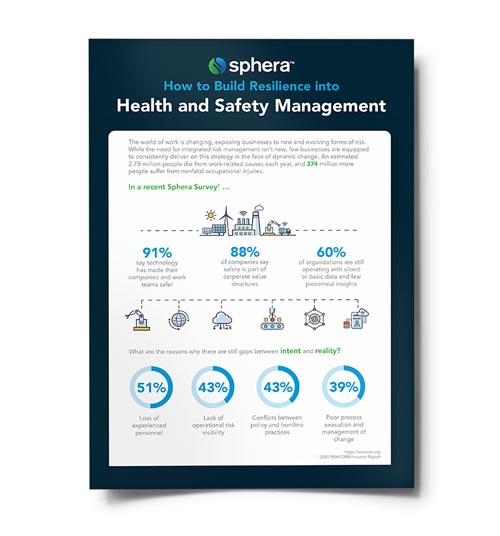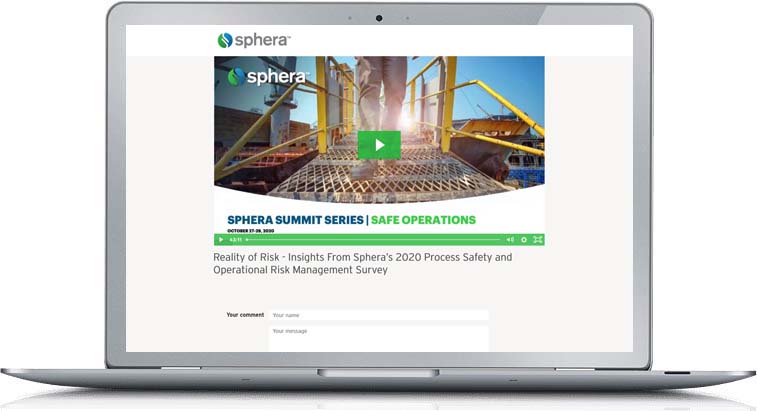If 2022 taught us anything, it’s that the drumbeat of change never stops. For operational risk management (ORM) and process safety management (PSM) professionals, one of the biggest changes to contend with is the acceleration toward greater digitalization within their organizations.
As the workforce gets younger and technology continues to advance, digitalizing PSM and ORM will become more of a focus in 2023 and beyond. Looking ahead to next year, here are three trends in digitalization to keep on your radar.
1. Younger Employees Are Expecting a Digital Transformation in the Workplace
As older generations begin to retire, younger generations are joining organizations. These younger workers bring with them new ideas and new expectations for how work will be performed and managed.
As a result, organizations will have to:
- Meet the expectations of younger generations – Given that younger employees are often accustomed to using smartphones and other devices, they expect to see technology used in place of paper processes. Industry leaders are responding by giving their employees the ability to access documents such as permits and piping and instrumentation diagrams using mobile devices.
- Accelerate digitalization – Organizations are digitalizing faster to ensure better data management. When onboarding employees, for example, it’s much simpler and safer for them to learn one digital solution rather than learn how to manage a slew of disparate paper permits, packs and processes.
- Get IT caught up – An obstacle that often gets in the way of organizations digitalizing their operations is having the necessary IT infrastructure and creating the bandwidth to handle dozens of new devices. Many SaaS companies are helping mitigate the digitalization growing pains IT faces by introducing capabilities such as full offline functionality and out-of-the-box configurations. And, as IT infrastructure increases, the depth and breadth of digitalization expands with it.
It’s important to adopt solutions that can adapt to a company’s needs over time. Standard, out-of-the-box solutions can be customized later down the line as the company grows.

2. Digitalization Is Leading to Process Improvements
Industry safety leaders aren’t just digitalizing one part of their business — they’re digitalizing the entire safe work process. Through a digital transformation, organizations can get a more comprehensive view of the work being performed in the facility, allowing them to manage two or three jobs happening in the same area and handle any potential conflicts before they arise.
Through digitalization, companies can:
- Save time through digital processes – With digitalization, work order can be synchronized with the permitting process, allowing a permit request to be generated automatically when the work is scheduled to start. The time savings gained can be as simple as not having to walk from one end of the facility to the other to get approvals on permits.
- Streamline processes – When permits are generated automatically, it streamlines lengthy processes. An example of this is preparing the permits for a planned shutdown. Instead of writing out each permit needed for the planned shutdown on paper (a process that can take days), a digital solution can produce them with the press of a button.
- Focus on ROI – The costs of implementing a digital solution will often be offset by the savings gained through streamlined processes and reduced incidents. As a result, increased process improvements are proving to be a significant benefit of digitalization.
3. Digitalization Is Changing Safety Culture
Similar to the domino effect, a younger workforce accelerating the adoption of digital solutions has led to myriad other changes within organizations. These changes include:
- New leadership bringing culture changes – As younger, tech-savvy generations join organizations, move up the ranks and assume leadership roles, digitalization is beginning to play a bigger role in companies’ safety culture.
- New processes creating new roles – Just as technological advancements created the role of social media manager, the rise of digitalization in safe work processes has created new roles at companies. These roles include digital product managers, digitalization culture change specialists, scrum masters and digital product owners. Along with these roles are coming new certifications, like certified scrum master (CSM) and certified scrum product owner (CSPO). Leaders across organizations are beginning to create digitalization teams, and these roles and certifications play a crucial role within them. CSPOs and CSMs are instrumental in the success of companies’ digitalization teams due to their ability to set up automation, test software, run reports and communicate ROI on software.
- Embracing a digital transformation – While culture change can be difficult for an organization, the addition of new leadership, roles and teams focusing on digitalization is contributing to the accelerated adoption of digital solutions within companies.
Looking Ahead to 2023
As the above trends show, it’s not a matter of if organizations digitize, but when. The times are changing, and organizations must change with them in order to meet employee expectations and improve their processes and safety culture.
This is the first article in a series exploring digitalization trends in ORM and PSM. Be on the lookout for later installments in the series on Spark.











